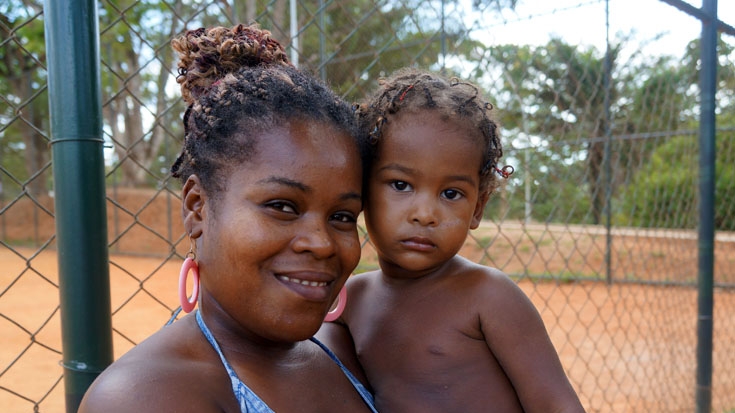If there is one thing Brazil does well, it is globalization. It made soccer and its soap operas global phenomena, transforming Brazil into a global brand. Now it’s time for the country’s poverty reduction model to have its day.
Brazil is convinced that eliminating this relentless social scourge at home and around the world will be more effective if it becomes a truly joint effort.
In keeping with this philosophy, the South American giant has created the first global center for poverty reduction, Mundo Sem Pobreza (World Without Poverty), which will effectively become a market of ideas and experiences in applying programs to benefit the most disadvantaged citizens.
The starting point and inspiration for this effort is the most successful Brazilian program of all time: Bolsa Familia, which in its decade of implementation has managed to reduce poverty by half in Brazil (from 9.7% to 4.3%), thanks to its broad scope and coverage – some 50 million low-income Brazilians, or a quarter of the total population.
Unlike subsidies and other general social programs, Bolsa Familia is a conditional cash transfer program through which parents receive a fixed monthly stipend (in this case R$70, about $ 30) in exchange for sending their children to school and complying with different health checkups.
Although 1.7 million beneficiaries have “graduated,” in other words, have left the program, critics warn that many may become dependent on this system. They believe that Bolsa Familia is important for alleviating hunger and strengthening social empowerment but that the greatest challenge is to provide employment opportunities and basic services to that population. This is precisely the focus of the government’s ambitious anti-poverty program, Brasil Sem Miseria, which promises to help millions of Brazilians escape extreme poverty.
Beyond the debate, the success of this initiative, which was launched in Brazil in 2003, has made the country an “exporter of social policymaking,” according to observers. In 2013, 120 delegations visited Brazil to learn about Bolsa Familia and the so-called single registry, which identified and registered the country’s poorest citizens.
Poverty is indeed a global problem. Nearly 1 billion people, or 15% of the world’s population, live on less than $1.25 per day.
“We are interested in the single registry; we believe it is one of the most important tools for developing effective social protection systems,” said Djibouti’s Social Solidarity Minister Zahra Youssouf Kayad, during the launching ceremony of the Mundo Sem Pobreza program this week in Rio de Janeiro, as part of a South-South knowledge exchange forum. Over 200 policymakers and ministers from 70 countries attended the event, as well as specialists from international agencies.


